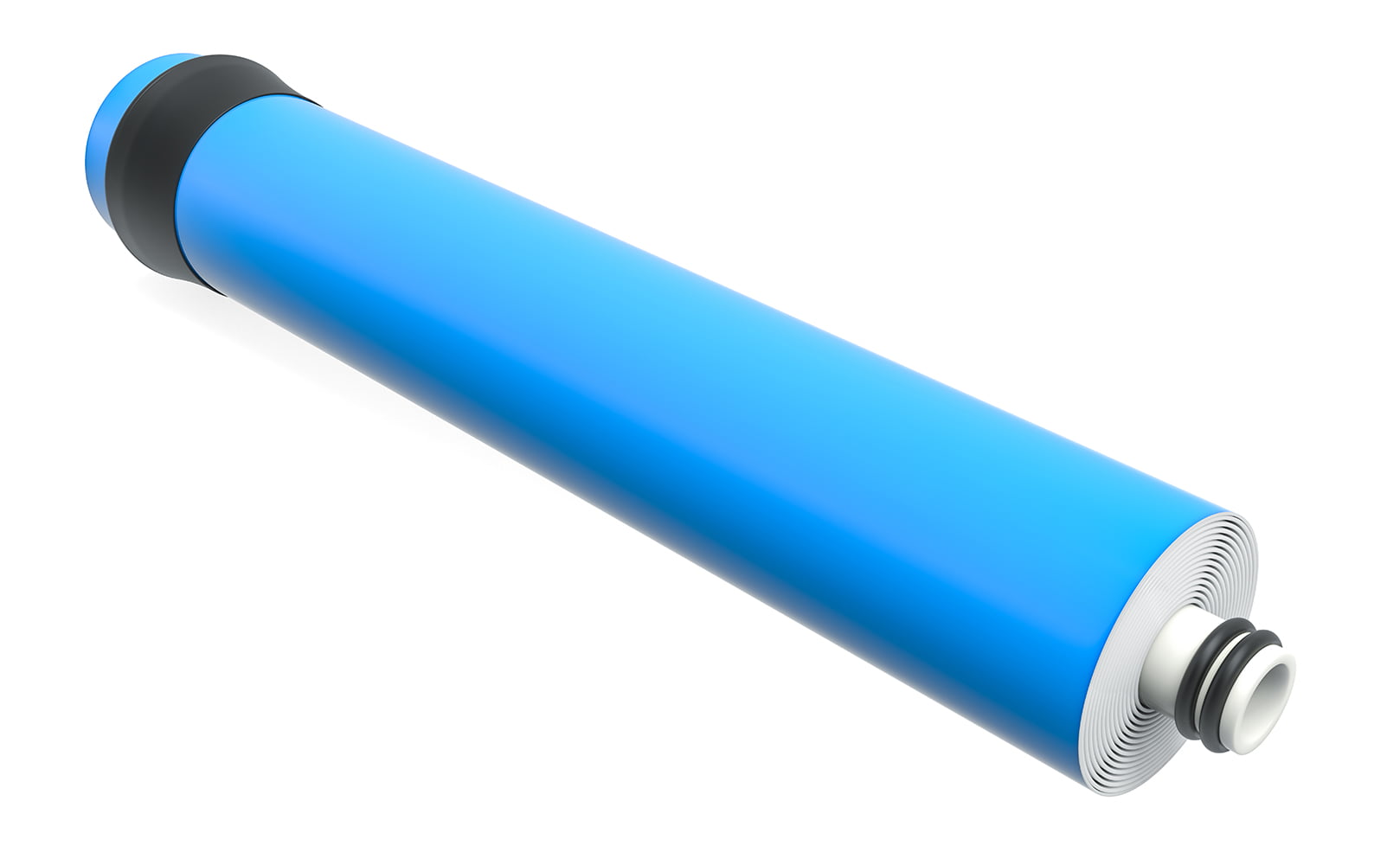Does Reverse Osmosis Water Dehydrate You? Let’s Find Out!
Written by: Gene Fitzgerald // Last Updated: Jun 16, 2023
This page may contain affiliate links. If you buy a product or service through such a link we earn a commission at no extra cost to you. Learn more.
Reverse osmosis drinking water raises concerns for many people because of several myths surrounding it.
One such “myth” is that reverse osmosis water dehydrates you when you drink it.
If you’re worried about this and want to know the truth, keep reading. This article will answer your questions and set the facts straight.
Key Takeaways
- Reverse osmosis water does not dehydrate you.
- Some sources claim reverse osmosis water may be less hydrating than regular water due to lower TDS/electrolyte levels which makes sense.
- A remineralization filter can be used to enrich your purified RO water with electrolytes so that you have nothing to worry about.
Does Reverse Osmosis Water Dehydrate You?
So, does reverse osmosis water dehydrate you?
Well, there’s little to no scientific research on this topic, so there’s barely any evidence that supports or debunks this claim.
However, some of the few sources we came across claim that reverse osmosis water may be less hydrating than regular water. The reason is that RO water has a low level of TDS and thus contains fewer electrolytes. So when ingested, it may result in subpar hydration.
Considering that electrolytes are necessary for proper hydration, this holds an element of truth. Still, it does not validate the claim that RO water causes dehydration. Instead, it insists that reverse osmosis water with low TDS cannot hydrate you as properly as normal water would.
On the other hand, one study reports that hypotonic carbohydrate-electrolyte drinks constantly ingested during exercise did a better job at hydration. Hypotonic water/drink here refers to water with lower salt levels than your body’s. RO water has extremely low salt levels and is, therefore, hypotonic.
What to make out of this? RO water will probably be good for hydration as long as it contains some electrolytes. Now, how much electrolytes your RO water contains depends on various factors, most importantly electrolyte levels in the feed water. In other word, your reverse osmosis water may be perfectly fine for hydration.
If you are still worried, get a remineralization filter for peace of mind! One thing is for certain, though: Reverse osmosis water does not dehydrate you, it may just not provide optimal hydration.
Busted: Common Myths Claiming That RO Water Is Bad for You
Several other myths fly about claiming that reverse osmosis is bad for you. Many are misconceptions, so you shouldn’t let them confuse you. Let’s bust a couple of the most common ones here:
RO Water Attacks Your Body
Ever heard that RO water attacks the mucous membranes in your body because of its low TDS levels? This myth is popular. However, there’s no evidence of any adverse health effects from drinking low TDS water. People have been doing it for a while without problems. For instance, the municipal water in Vancouver has naturally low TDS levels. Residents drink it, and yet no health issues have been reported as a result.
The WHO also hasn’t set a minimum standard for the amount of TDS in the water. So it doesn’t pose such a severe concern.
Reverse Osmosis Water Is Unhealthy Because It Lacks Minerals
It is true that reverse osmosis grossly reduces the mineral content of water. But this doesn’t make it unhealthy to drink. Health practitioners have confirmed that most essential minerals come from our diet.
Of course, that doesn’t mean minerals obtained from water are useless. But minerals removed in reverse osmosis will only be a loss for someone not getting them in sufficient amounts from their food. So, if you eat a balanced diet, you’re fine without those minerals.
However, the WHO did carry out a study once in 2003 that ascertained that few minerals like calcium and magnesium are necessary for drinking water to complete overall dietary intake. But since both can be added back after filtration with remineralization filters, it’s nothing to worry about really.
The WHO Warns Against Drinking RO Water
Many blogs and websites post this misleading information. They claim that the WHO has warned against drinking RO water. And yet, no such warnings are on the WHO’s official website.
What Is Reverse Osmosis Water Purification?
Reverse osmosis tops the chart when it comes to effective water purification technologies. It is used to purify water in commercial, industrial, and residential settings.
Reverse osmosis works by passing pressurized water through a semipermeable membrane. The membrane’s pores are so small (0.0001 microns) that only water molecules pass through, while large contaminants get trapped and flushed out eventually. Filtered water is collected into a pressurized storage tank and drawn from a faucet when needed.
Reverse osmosis systems for home use also have other types of filters integrated into them. Sediment and carbon filters are installed as pre-filters to reduce any debris or chemicals that may foul the RO membrane. And after the RO membrane, a post-filter, such as a remineralization or alkaline filter, can be installed to replace any minerals lost during filtration.
Reverse osmosis systems are available as point-of-use (under sink and countertop) and point-of-entry (whole house) systems.
RO Wastes Water
During reverse osmosis, water is filtered and sent to the storage tank. However, the contaminants left on the membrane need to be flushed out. As a result, not all the input water gets recovered as filtered water.
Usually, the ratio of wastewater to filtered water is 1:4, although it varies for different systems. This means that four gallons are wasted for every gallon of filtered water produced. This may sound unsustainable, but it’s only part of reverse osmosis.
The important thing is that you get clean water after. However, if you’re uncomfortable with losing that much water, there are always remedies. Some include adding a booster pump to your system or reusing the wastewater.
If you have any thoughts about the question, does RO water dehydrate you, please don’t hesitate to leave a comment below!
Information provided on BOS is for educational purposes only. The products and services we review may not be right for your individual circumstances.
We adhere to strict editorial guidelines. Rest assured, the opinions expressed have not been provided, reviewed, or otherwise endorsed by our partners – they are unbiased, independent, and the author’s alone. Our licensed experts fact-check all content for accuracy. It is accurate as of the date posted and to the best of our knowledge.



